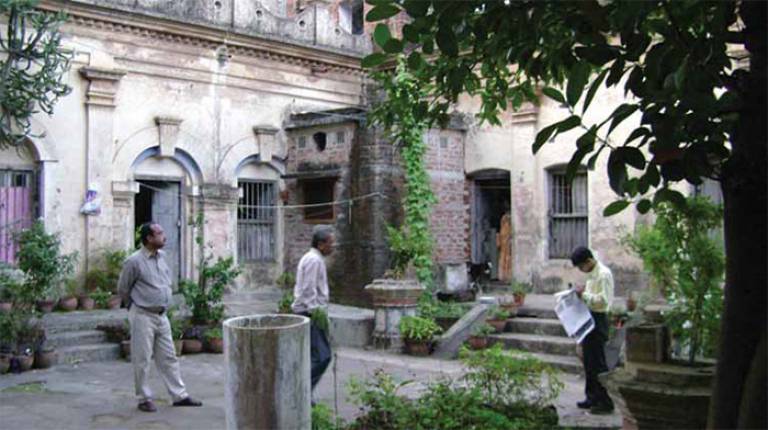
Overview
This article, published in the Journal of Architecture, focuses on the domestic architecture of Indian town-dwellers within the context of provincial urbanisation in British colonial Bengal in the 19th century. It maps out the complex development of house forms in provincial towns, particularly in relation to rural–urban mobility and new social relationships brought about by the establishment of colonial governmental infrastructure in interior areas of the Bengal Province. Positing these domestic forms to be as important as the much-studied 'bungalow' in terms of typological complexity as well as the range of social, political and economic processes that they represented, the article foregrounds them as being significant spatial models of colonial urban domesticity and modernity.
The article analyses the development of residential architecture in the light of the varied perceptions of provincial towns held by different constituencies among the urban population (such as European officers or Bengali rural immigrants) from a range of socioeconomic classes. It argues that rural–urban mobility and the nature of changing but continuing connections between rural and urban locations created an incrementally growing provincial urban domestic architecture characterised by malleable notions of work, home and leisure spaces. This produced a typological flexibility and specific articulations of public and private domains within residential premises.
The chief purpose of the paper is threefold: first, to make a case for Indian agency in the co-production of colonial architecture and urbanism; second, to argue the role of provincial spatial cultures and house forms as key bearers of colonial modernity; third, to explore colonial architectural history through on-ground mapping of everyday domestic spaces of individual families and varied social groups.
People
Tania Sengupta
View Tania's profile
Send Tania an email
 Close
Close

